Related Research Articles

Linus Carl Pauling was an American chemist, biochemist, chemical engineer, peace activist, author, and educator. He published more than 1,200 papers and books, of which about 850 dealt with scientific topics. New Scientist called him one of the 20 greatest scientists of all time, and as of 2000, he was rated the 16th most important scientist in history. For his scientific work, Pauling was awarded the Nobel Prize in Chemistry in 1954. For his peace activism, he was awarded the Nobel Peace Prize in 1962. He is one of five people to have won more than one Nobel Prize. Of these, he is the only person to have been awarded two unshared Nobel Prizes, and one of two people to be awarded Nobel Prizes in different fields, the other being Marie Curie.

Barton County is a county located in the southwestern part of the U.S. state of Missouri. As of the 2020 census, the population was 11,637. Its county seat is Lamar. The county was organized in 1855 and named after U.S. Senator David Barton from Missouri.

Ira Remsen was an American chemist who discovered the artificial sweetener saccharin along with Constantin Fahlberg. He was the second president of Johns Hopkins University.

William Barton Rogers was an American geologist, physicist, and educator at the College of William & Mary from 1828 to 1835 and at the University of Virginia from 1835 to 1853. In 1861, Rogers founded the Massachusetts Institute of Technology. The university opened in 1865 after the American Civil War. Because of his affiliation with Virginia, Mount Rogers, the highest peak in the state, is named after him.

Jacqueline K. Barton, is an American chemist. She worked as a professor of chemistry at Hunter College (1980–82), and at Columbia University (1983–89) before joining the California Institute of Technology. In 1997 she became the Arthur and Marian Hanisch Memorial Professor of Chemistry and from 2009 to 2019, the Norman Davidson Leadership Chair of the Division of Chemistry and Chemical Engineering at Caltech. She currently is the John G. Kirkwood and Arthur A. Noyes Professor of Chemistry.
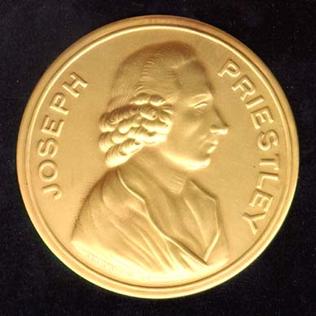
The Priestley Medal is the highest honor conferred by the American Chemical Society (ACS) and is awarded for distinguished service in the field of chemistry. Established in 1922, the award is named after Joseph Priestley, the discoverer of oxygen who immigrated to the United States of America in 1794. The ACS formed in 1876, spearheaded by a group of chemists who had met two years previously in Priestley's home.
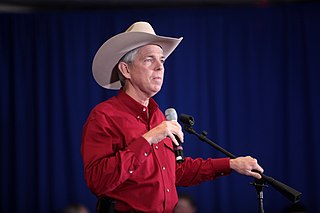
David Barton is an evangelical author and political activist for Christian nationalist causes. He is the founder of WallBuilders, LLC, a Texas-based organization that promotes pseudohistory about the religious basis of the United States.

David Barton was one of the first U.S. senators from Missouri, serving from 1821 to 1831.
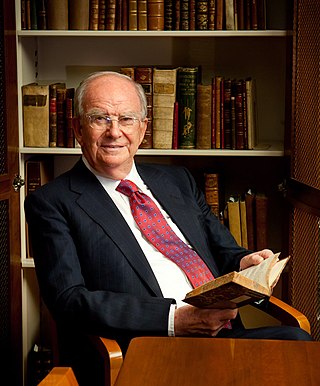
Sir John Meurig Thomas, also known as JMT, was a Welsh scientist, educator, university administrator, and historian of science primarily known for his work on heterogeneous catalysis, solid-state chemistry, and surface and materials science.

Martin D. Hardin was a politician and lawyer from Kentucky. Born in Pennsylvania, his family immigrated to Kentucky when he was still young. He studied law under George Nicholas and commenced practice at Richmond, Kentucky. His cousin, future U.S. Representative Benjamin Hardin, studied in his law office. He represented Madison County in the Kentucky House of Representatives for a single term.
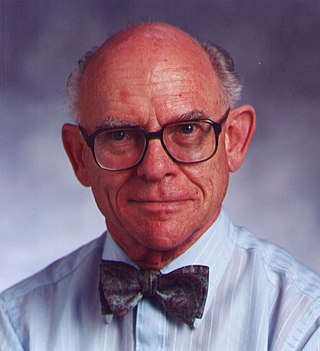
Frank Albert Cotton FRS was an American chemist. He was the W.T. Doherty-Welch Foundation Chair and Distinguished Professor of Chemistry at Texas A&M University. He authored over 1600 scientific articles. Cotton was recognized for his research on the chemistry of the transition metals.
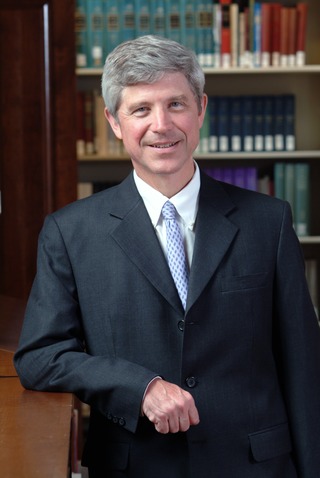
Thomas M. Connelly Jr., born in Toledo, Ohio in June 1952, is an American business executive with a focus on chemical engineering. In February 2015, he succeeded Madeleine Jacobs as chief executive officer and executive director of the American Chemical Society.

In Missouri, the 1824 United States presidential election resulted in the state's electoral college votes going to Henry Clay, but then its vote in the House of Representatives contingent election going to the eventual winner, John Quincy Adams. In the 1824 presidential election, five major candidates emerged: Clay, Adams, Andrew Jackson, William H. Crawford, and John C. Calhoun, although Calhoun dropped out to run for the vice presidency. In the new state of Missouri, Crawford had little support, Clay was the popular favorite, Jackson was popular in rural areas, and Adams had some support in urban areas, particularly St. Louis. Clay won the popular vote, with Jackson second, Adams third, and Crawford fourth, and Clay received Missouri's three votes in the electoral college.

The American Institute of Chemists Gold Medal is the highest award of the American Institute of Chemists and has been awarded since 1926.

Stephen James Benkovic is an American chemist. He is Evan Pugh Professor and Eberly Chair in Chemistry at Penn State University. His research has focused on mechanistic enzymology and the discovery of enzyme inhibitors. He was elected to the United States National Academy of Sciences in 1985 and received the National Medal of Science in 2009.

Stephen James Lippard is the Arthur Amos Noyes Emeritus Professor of Chemistry at the Massachusetts Institute of Technology. He is considered one of the founders of bioinorganic chemistry, studying the interactions of nonliving substances such as metals with biological systems. He is also considered a founder of metalloneurochemistry, the study of metal ions and their effects in the brain and nervous system. He has done pioneering work in understanding protein structure and synthesis, the enzymatic functions of methane monooxygenase (MMO), and the mechanisms of cisplatin anticancer drugs. His work has applications for the treatment of cancer, for bioremediation of the environment, and for the development of synthetic methanol-based fuels.
Thomas C. Bruice was a professor of chemistry and biochemistry at University of California, Santa Barbara. He was elected to the National Academy of Sciences in 1974. He was a pioneering researcher in the area of chemical biology, and is one of the 50 most cited chemists.
Seth Barton was an attorney and government official who was active in Alabama and Louisiana. He served the federal government as Solicitor of the United States Treasury and Chargé d'affaires in Chile.
Thomas Flynn Edgar is an American chemical engineer.
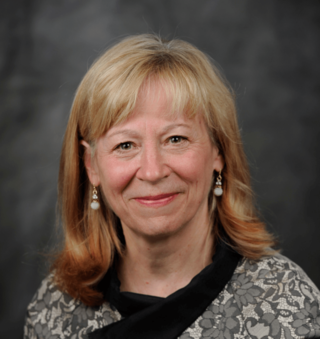
Geraldine Lee Richmond is an American chemist and physical chemist who is serving as the Under Secretary of Energy for Science in the US Department of Energy. Richmond was confirmed to her DOE role by the United States Senate on November 5, 2021. Richmond is the Presidential Chair in Science and professor of chemistry at the University of Oregon (UO). She conducts fundamental research to understand the chemistry and physics of complex surfaces and interfaces. These understandings are most relevant to energy production, atmospheric chemistry and remediation of the environment. Throughout her career she has worked to increase the number and success of women scientists in the U.S. and in many developing countries in Africa, Asia and South America. Richmond has served as president of the American Association for the Advancement of Science, and she received the 2013 National Medal of Science.
References
- ↑ "For President-Elect: Thomas J. Barton | Chemical & Engineering News". cen.acs.org. Retrieved 2014-07-13.
- ↑ "Thomas J. Barton | Department of Chemistry". chem.iastate.edu. Retrieved 2014-07-13.